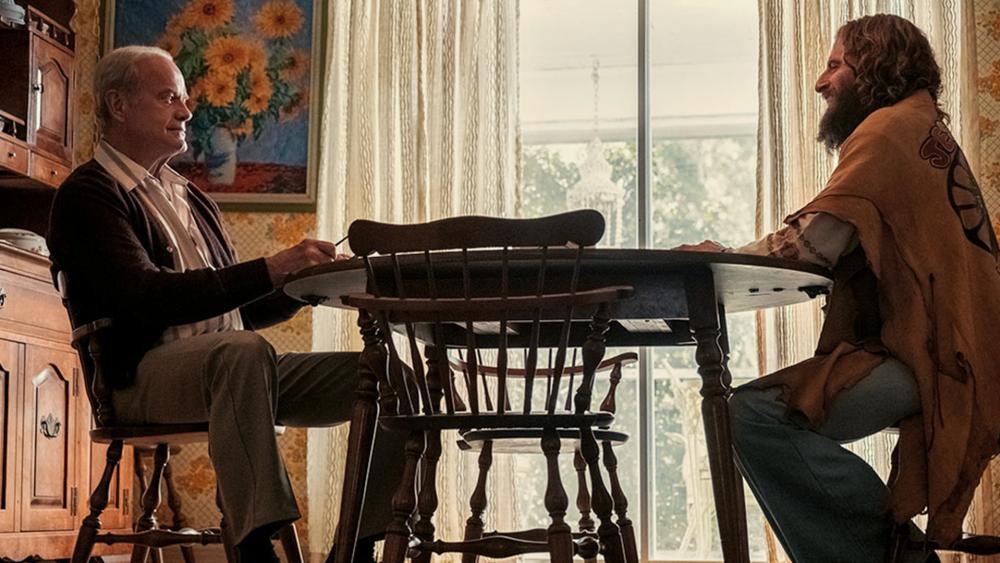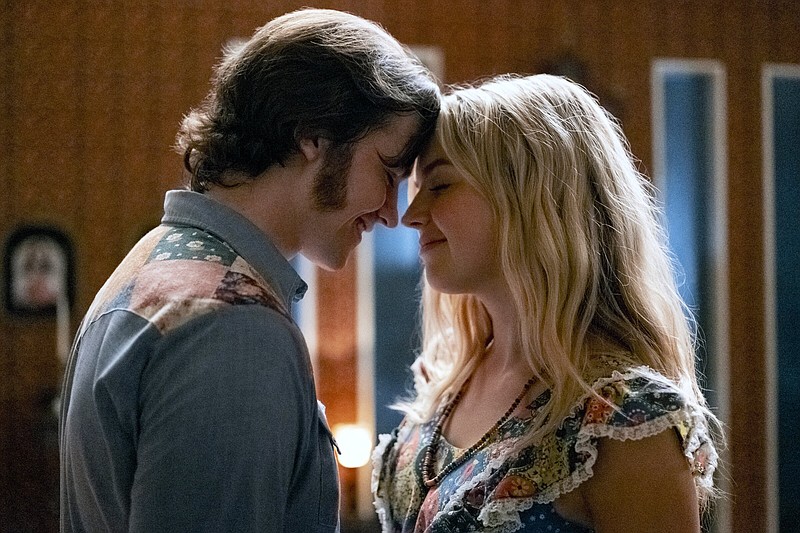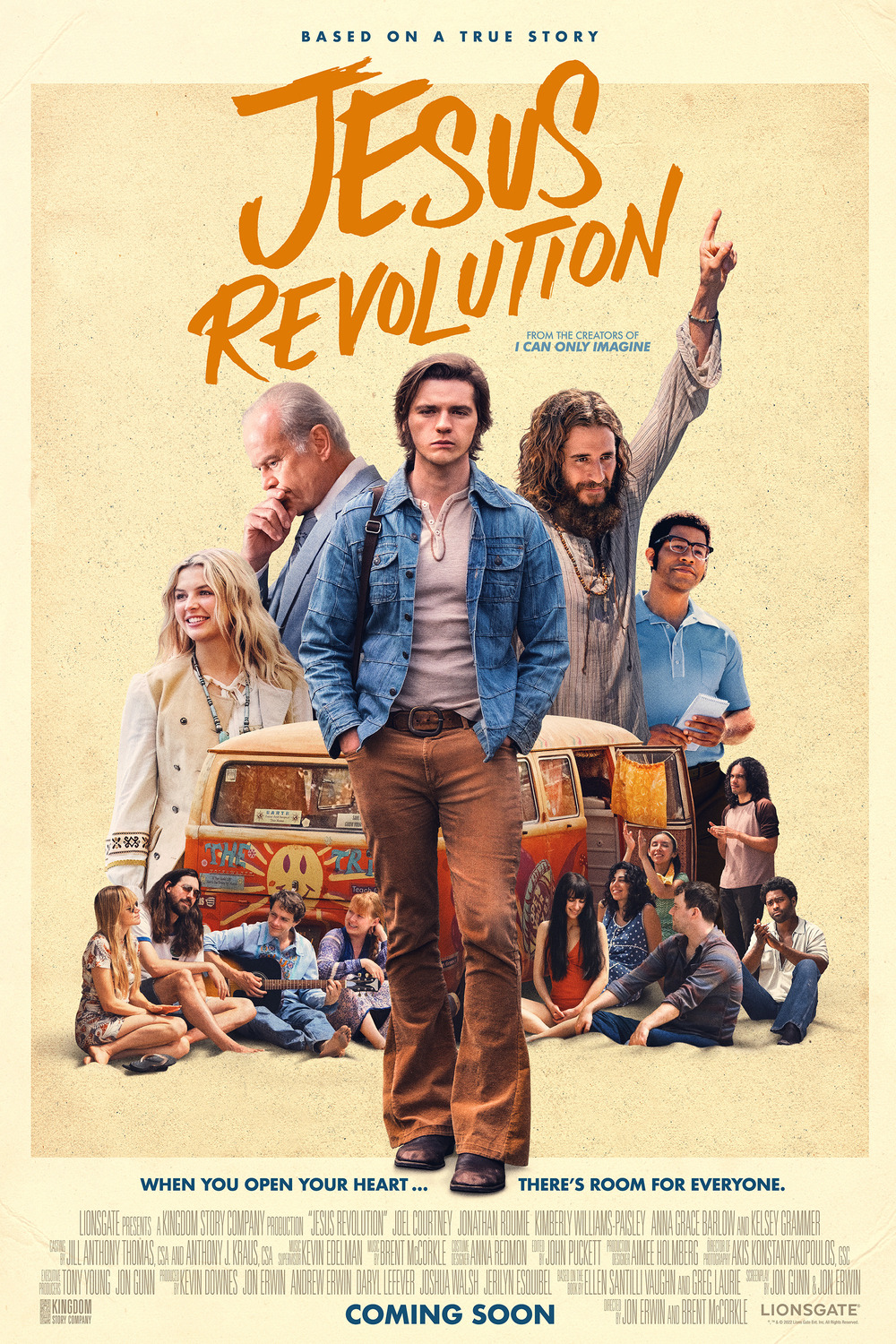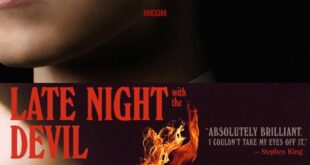Jesus Revolution is a missed opportunity to explore an interesting period in American history. What could have been a fascinating examination of the period and people are turned into a rather bland made-for-TV movie that, while above other faith-based films that have come out (looks at Kirk Cameron), is still corny, rushed, and stale. It’s an ideal portrayal of specific real-life figures like Chuck Smith and Greg Laurie, two people who are known as anti-homosexual pastors who have made plenty of money off of Jesus’s name. There’s not much attempt in the film to give us multi-dimensional characters. Everything is pretty much surface-level. A fascinating character in the movie is based on real-life Lonnie Frisbee, and his life is mainly glossed over.
The film is set primarily from 1968-1970 and tells the founding of what became known as the Jesus movement, aka “Jesus Freaks.” This is an underexplored topic in cinema, especially with a bevy of films released set during this time. Chuck Smith (Kelsey Grammer) is the head pastor of a small church called Calvary Church in Costa Mesa, California. Stern, and by the book, he and his wife disdain hippies and what the world has become. Their daughter challenges him to embrace hippies since they have a message of free love and acceptance, supposedly a Christian universal message. Hence, she picks up a hippie who happens to be Lonnie Frisbee and introduces her to Chuck, and just like that, they’re best pals! Chuck shows slight resistance, but Lonnie almost instantly wins him over. Chuck and Lonnie’s Calvary Church attracts young people far and wide, including Greg (Joel Courtney) and Cathe (Anna Grace Barlow). Both start with drugs and eventually go to church for new answers.

Admittedly, I am not the target audience for Jesus Revolution which is intended as a faith-based film. My dad and I usually go to the movies about once a week, so he saw a preview for that and was undoubtedly attracted more to the historical aspect (as was I) than the Christian sermonizing. In terms of faith-based films, I will say this is at least a little less preachy. Sure, there are laughable moments like the film’s portrayal of drugs and drug culture, which is almost like out of Forrest Gump or something (the soundtrack gives the film a Forrest Gump feel too). Still, the film does make a slight though cloying, attempt at acceptance and embracing Jesus’s more “radical” teachings, like accepting sinners. The film is hardly radical at all. Everything is simple and upfront. There’s nothing really to sink your teeth into dramatically.
As I mentioned earlier, the only character presented somewhat negatively is the Lonnie Frisbee character, well-played by Christian film actor Jonathan Roumie, who becomes enamored in the healing capabilities he thinks he has. He becomes obsessed with his self-image and the theatricals of sermonizing, and his marriage with his wife is falling apart. Although his character plays a big part in the film, he is conveniently written off and leaves. The real-life Frisbee was more complicated and eventually succumbed to AIDS in 1993, a detail the Christian-based movie conveniently leaves out. He lived a private life as a gay man. It must’ve been a fascinating paradox and a perfect opportunity for the film to explore genuinely getting at the core of alternative Christianity, but it chooses not to. No doubt to appeal to the Conservative Christian-based audience it’s going for.

Admittedly the film’s production design is impressive, but nothing about Jesus Revolution screams theatrical release. At the same time, though, the film has been a hit at the box office and with audiences who gave it a rare A+ Cinemascore. However, there’s no serious attempt to broaden the appeal outside its intended core audience. I’m sure Christian churches and ministries are also driving the positive appeal the film appears to have. I think it would have been a fascinating story if it wasn’t made as a faith-based film. Instead, Jesus Revolution is satisfied with being a sanitized version of historical events, and at two hours can’t sustain compelling drama for that length of time. The acting is good enough, and the production design is passable, but nothing that transcends the genre or appeal.
** out of ****

 Movie Finatics The Place for Movie Lovers
Movie Finatics The Place for Movie Lovers



